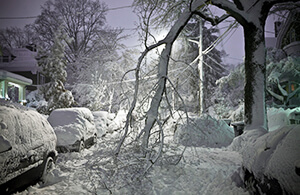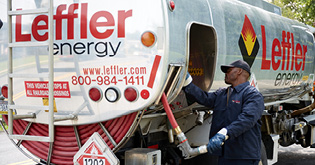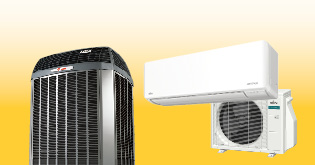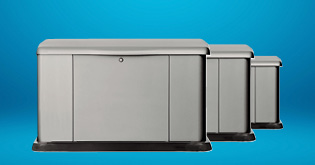
Weathering a winter storm.
 We've got the tips, advice, and information you need to help you stay safe before, during, and after a winter storm.
We've got the tips, advice, and information you need to help you stay safe before, during, and after a winter storm.
BEFORE
Understand what's coming
- A winter weather "watch" means severe wind chill, a blizzard or storm is forecast within 24 - 72 hours.* If you live in the watch area, listen to weather updates and get prepared for whatever is forecast.
- A winter weather "warning" means that dangerous weather conditions that could threaten people and property is forecast within the next 24 hours.* You should remain at home and only leave if you absolutely must, using extreme caution if you do.
Get your home ready
- Use storm windows to protect and insulate your home
- Clear gutters of leaves and debris to prevent flooding or ice dams
- Make sure smoke and carbon monoxide detectors are installed and working
- Check heating fuel levels
- Make sure heating equipment and chimneys have had their annual inspection
Make vehicles ready
- Make sure gas tanks are full
- Check antifreeze levels
- Move your vehicle if necessary
- Make sure you have a car emergency kit, including a flashlight, water, snacks, an extra hat, socks, gloves, blankets, first aid kit, rock salt, flares, shovel, and tire chains
Get required supplies
- Several days supply of water (1 gallon per person per day)
- Non-perishable food
- Any medications
- Flashlight
- Batteries
- NOAA weather radio
- Fire extinguisher
- Rock salt
- Snow shovel or snow removal equipment
DURING
Do not leave home
- Stay tuned to TV or radio for important weather changes
- Only leave the house if absolutely necessary
Prevent plumbing emergencies
- Prevent freezing pipes by leaving faucets slightly open and keeping under sink doors open to circulate warm air
- If pipes do burst, know where the water shut-off valve is and how to turn it off
Be safe if you lose power
- If you have a generator, NEVER use it inside your home, garage, basement, crawl spaces, or other enclosed or partially enclosed areas, even if ventilated.
- Do not leave lit candles unattended
Don't forget your pets
- Bring them indoors or to a warm sheltered area
- Provide easy access to food and water
AFTER
Be safe
- Snow and ice outdoors can be a problem whether walking or driving
- If shoveling snow or ice, warm up first, take breaks, and don't overexert yourself
- Stop physical activity immediately if you get dizzy, nauseous, sweat excessively, or have shortness of breath
- Avoid hypothermia or frostbite by covering exposed skin and dressing in warm layers
And, we're the local name you can trust for all of your home service needs -24/7, in any weather. Call 1.800.984.1411
*Source: National Weather Service






